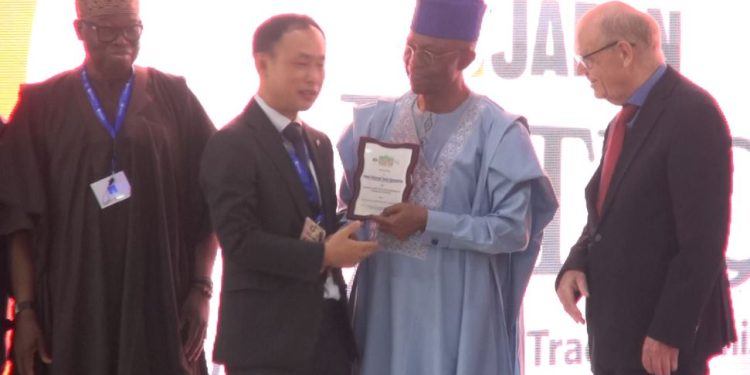Japan has reaffirmed its commitment to strengthening trade relations with Nigeria following its participation in the recent Lagos International Trade Fair. In a statement at the fair’s closing ceremony, Tokashi Oku, the Managing Director and Trade Commissioner for the Japanese External Trade Organisation (JETRO), expressed optimism about the potential for a deeper partnership between the two nations, despite the economic challenges that affected the event’s turnout this year.
Oku acknowledged the lower-than-expected attendance at the fair, attributing it to the difficult economic conditions in Nigeria. “Yes, so we expect the economy to recover because it was an economically challenging situation that affected the participants’ numbers,” Oku stated, noting that the reduced visitor turnout did not diminish the value of the event or Japan’s commitment to Nigeria.
A Positive Outlook Despite Setbacks
Despite the economic climate impacting the event’s attendance, Oku emphasized that the participating Japanese companies had still engaged in fruitful business discussions and secured significant agreements with Nigerian firms. “Even though the number of visitors is decreasing, I believe some business discussions and prominent contracts are steady,” he added.
This sentiment reflects Japan’s ongoing confidence in the Nigerian market, which is viewed as a key economic partner in Africa. Over the years, Japan has steadily increased its investments in Nigeria, focusing on industries such as manufacturing, technology, and infrastructure. Oku’s comments suggest that Japan’s long-term economic interest in Nigeria remains strong, with both nations looking to bolster their trade partnership in the coming years.
Trade Fair Achievements Despite Economic Constraints
The Lagos International Trade Fair, held annually, serves as a significant platform for international companies to showcase their products and explore new business opportunities within Nigeria and the broader West African region. This year, despite the challenges, many Japanese exhibitors were able to establish new contacts and forge strategic partnerships with Nigerian businesses, further reinforcing the importance of the trade fair in enhancing bilateral trade.
Oku highlighted that the fair had still achieved a number of positive outcomes, despite the challenges posed by the country’s current economic conditions. Japan’s participation this year, he noted, was in line with Japan’s broader strategic efforts to deepen its economic ties with Africa, and specifically Nigeria, which has a market of over 200 million people and serves as a key entry point into the West African market.
Japan’s Continued Investment in Nigeria
Japan’s trade engagement with Nigeria spans various sectors, from automotive and electronics to infrastructure development and energy. Japan’s car manufacturers, such as Toyota and Honda, have established a strong presence in Nigeria, while Japanese technology companies continue to explore opportunities in Nigeria’s burgeoning tech ecosystem. Oku’s statement further underscores Japan’s dedication to creating a sustainable trade relationship with Nigeria, regardless of short-term economic fluctuations.
The Japanese government has also been involved in multiple development initiatives within Nigeria, focusing on infrastructure development, education, and health. These collaborations are expected to grow as both countries seek to leverage each other’s strengths and create long-term growth opportunities.
Looking Ahead
Looking to the future, Oku expressed a hopeful outlook for Nigeria’s economic recovery and its impact on trade. As Nigeria works to stabilize and grow its economy, Japan is prepared to continue expanding its business presence and contribute to the country’s development. The positive business engagements during the Lagos Trade Fair, despite the lower turnout, highlight the resilience of trade relations between the two nations.
Key Takeaways:
- Japan remains committed to strengthening trade relations with Nigeria, despite economic challenges affecting event attendance.
- Japanese companies reported successful business discussions and agreements with Nigerian firms during the Lagos International Trade Fair.
- Japan’s ongoing investments in key sectors like automotive, technology, and infrastructure indicate a deepening partnership with Nigeria.
- Both countries are optimistic about future collaborations, with Japan hopeful that Nigeria’s economic recovery will lead to further opportunities for trade and investment.















